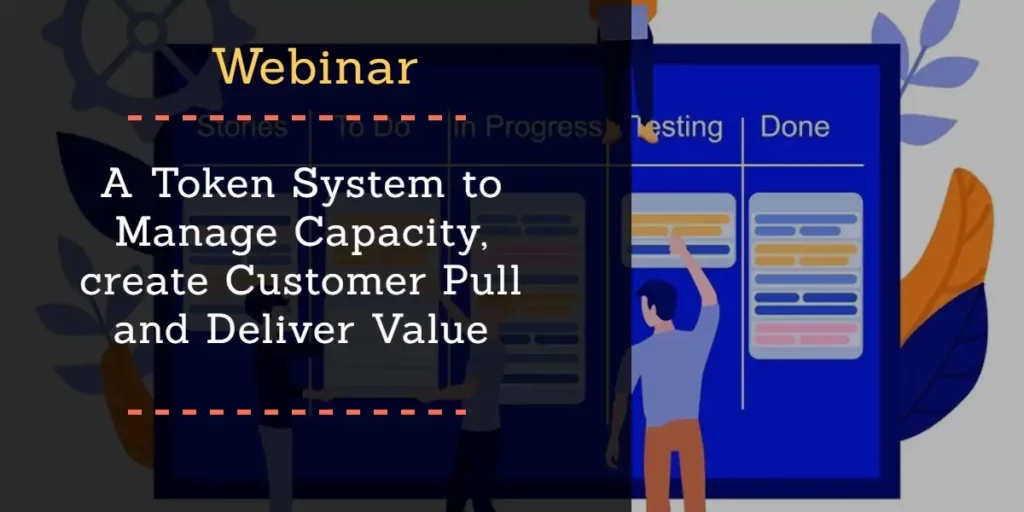Kanban as devised by Taichi Ohno was based on explicit tokens. Physical kanban tokens acted as signals to synchronize different processes and keep inventory under control. However, together with the intangible nature of knowledge work, Kanban systems have become increasingly virtual and kanban has become intangible. But, what if we bring (Kanban) tokens back to life? What if we build a token system much in the spirit of token systems that are currently used in the world of cryptocurrency? What if we go beyond Kanban tokens and build a token system that has an associated tokenomics (token economics) that incentivizes businesses to become ever more agile?
In this webinar, presented by Patrick Steyaert will discuss a token system that is based on two types of tokens: 1) asset tokens that represent supply side constraints (e.g. capacity constraints) and 2) currency tokens that can be used by the demand side to “buy” options on asset tokens. The token system builds on Patrick’s past work with Capacity tokens (CAP tokens) and Customer Kanban. Capacity tokens are tokens that represent capacity and are used to synchronize teams so that they deliver value not work. Customer Kanban is based on tokens that create customer pull (not just worker pull). Customer Kanban and CAP tokens have proven to be critical for business agility. Generalizing them in a token system opens new pathways for a more liquid organization.
About the Speaker: Patrick Steyaert is the founder of Okaloa. As a creator of Okaloa Flowlab, he teaches and coaches business agility by making use of simulations that stimulate agile thinking. With his partner, Arlette Vercammen, he has succeeded in creating a world-wide network of trainers and coaches that use Okaloa Flowlab in their day-to-day teaching and coaching. With his work on Upstream, Customer and Discovery Kanban, he helps organizations to look at the end-to-end flow from suspected to satisfied need. He is a recipient of the 2015 Brickell Key award for outstanding contribution to the Kanban community.

